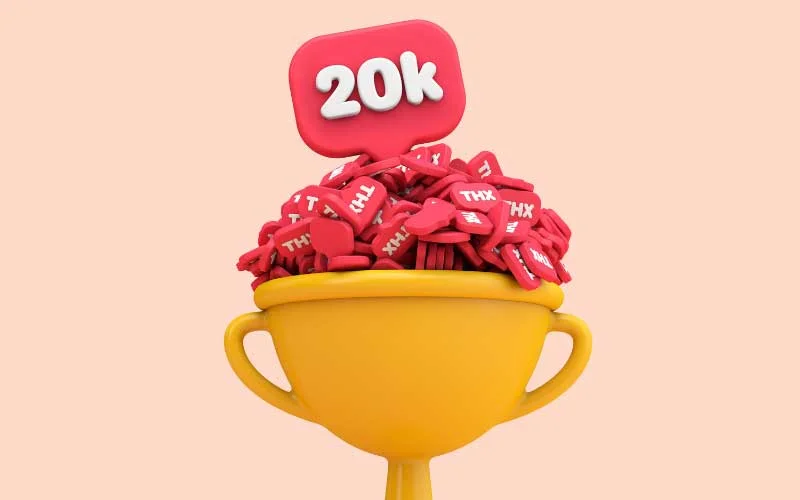The Latest from AdVentures
Followers vs. Engagement: What Matters More?

No matter if you post for clients or for yourself, one of the surface-level goals of social media has historically been to gain as many followers as possible. This makes sense, doesn’t it? The higher your follower count, the more people see your content on a regular basis, and the more people get to know you or your brand personally. Plus, we look up to people with high follower counts. Celebrities, news outlets, and other organizations all are far more likely to have follower counts in the millions. To most people, it’s an easy way to measure success.
But… Does follower count actually matter? There are plenty of other measurements for your success on social media, such as likes, retweets, shares, saves, and much more. Having a large following does not necessarily mean that those people will interact with your content, and having a large amount of people engaging with your content does not necessarily mean they’ll follow your page. In this post, we’ll break down what actually matters for your social media success.
Defining Engagement
While we mentioned things such as likes and shares to tentatively define engagement, it’s a lot more than that! To put it simply, engagement on social media is a measure of your audience’s interactions with your content. Different platforms give audiences different ways of engaging, such as:
- Stitches on TikTok
- Reblogging on Tumblr
- Reactions on Facebook and LinkedIn
- Likes on Instagram
Often, these numbers are publicly shown and the metrics are easy to track. However, engagement also includes things like tagging in the comments, click-through rate on links, and views on a video. Anything that involves an individual interacting with your content counts as engagement.
The Issue with Followers
Ultimately, the size of your following does not mean much if they are not interacting. It’s common to see pages with millions of followers with a fraction of those people engaging on their posts. For most people, follower count is a vanity metric. A large number looks great on the outside looking in, but is doing little to convert people and drive sales. Unfortunately, it’s even common to see engagement decreasing as follower count increases. But why? Shouldn’t it be the opposite?
For one, spam accounts run rampant on all social media platforms. They often follow, and then never interact ever again, diluting your metrics. Algorithm changes, functionality updates, and brand reach can all lead to this decline in engagement, even though follower counts are rising. While it’s never a bad thing to see your follower count rising, keep a few things in mind about the kinds of people you want to follow your brand. The relevance of your followers matters far more than the number. Brands with high follower counts and low engagement rates often set their reach too far, and end up with a few undesirable types of followers:
The Out-of-Towner: These types of followers often come across your content by chance, but live far outside your range of services. If your business is based in Memphis but your followers live in Phoenix, conversions are basically out of the question.
The Recluse: Reclusive followers are followers who are rare users of social media, only checking in a few times a month. Their lack of care for social media means less engagement for your business, resulting in “ghost followers”.
The Trend-Obsessed: These followers are in it for one thing only: The trends! Whether your business produced a viral product or uses trending memes and formats, this follower will only interact if you produce the next big thing.
The Bottom Line
At the end of the day, engagement rates typically have more impact than the number of followers. Having the right kind of followers can increase your engagement, but the wrong kind can skew your metrics. Generalizing your engagement strategy can lead to these wrong kinds of followers, but knowing your audience and catering to them can make the best of both worlds. If you’re looking to increase your social audience, AdVentures is here to help.
Who We Serve
Contact us today at (901) 605-1949 to discuss how we can best serve your business and share your brand story.